I first saw the Ricoh RZ-105 Zoom Date coming up at auction (with a more revealing picture, mind) in late 2016 and its striking looks made me curious. A quick Google search revealed a full review on Popular Photography magazine of August 1993 and one of its features caught my attention even further. At first glance, other than its outrageous design, this Ricoh offered a set of specs that were pretty common for the time for a flagship camera.
However, it also offered something the competition didn’t, something I haven’t seen in any other point-and-shoot (correct me if you know otherwise). So let me introduce you to the Ricoh RZ-105 Zoom Date (Shotmaster Zoom 105 Plus in America) or, as I call it, the Lamborghini Countach of the camera world.
The looks.
I don’t know about the rest of the world, but when I was a kid in Spain you either liked Ferraris or Lamborghinis. I was a Lamborghini guy (oddly enough, I felt, and still do, that Ferraris were a wee bit ostentatious, what with the red color and all) and had a poster of a white Countach hanging on my bedroom to prove it.
By the way, the photos of the camera are a poor attempt at reproducing the look of that same poster. When I first held the Ricoh RZ-105 it immediately made me think of the Lamborghini Countach. The design of both the car and the camera are quite in-your-face, they’re big and bulky and have protruding bits here and there. The big lens reminds of the Lamborghini’s huge rear wheels too. I guess whatever attracted me to the Countach as a kid still lingers, maybe a little part of me that wants to be a bit showy.
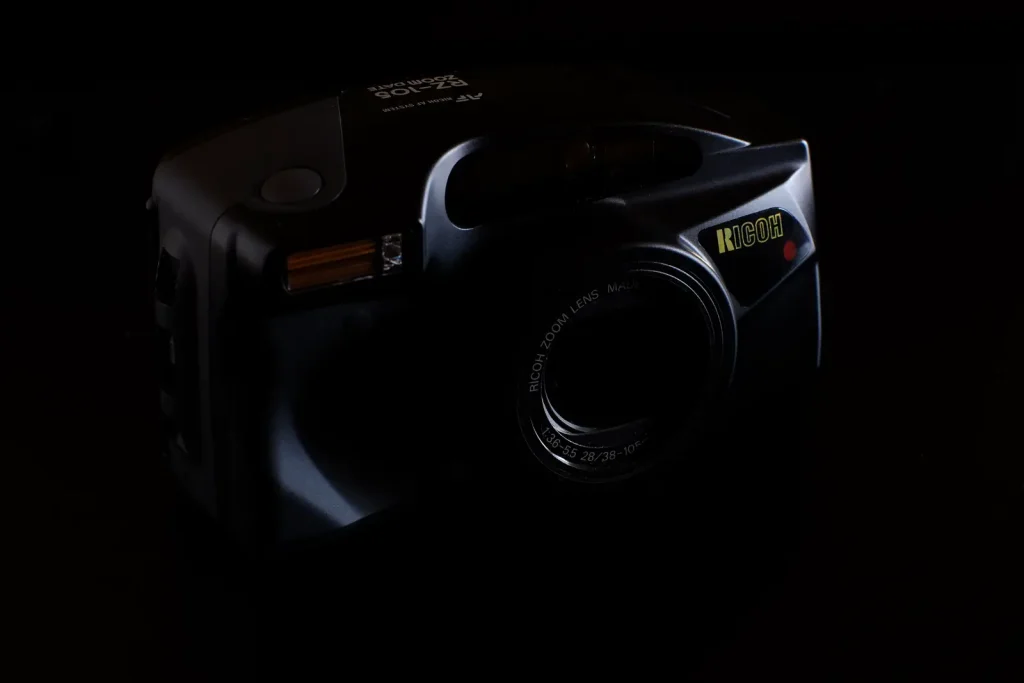
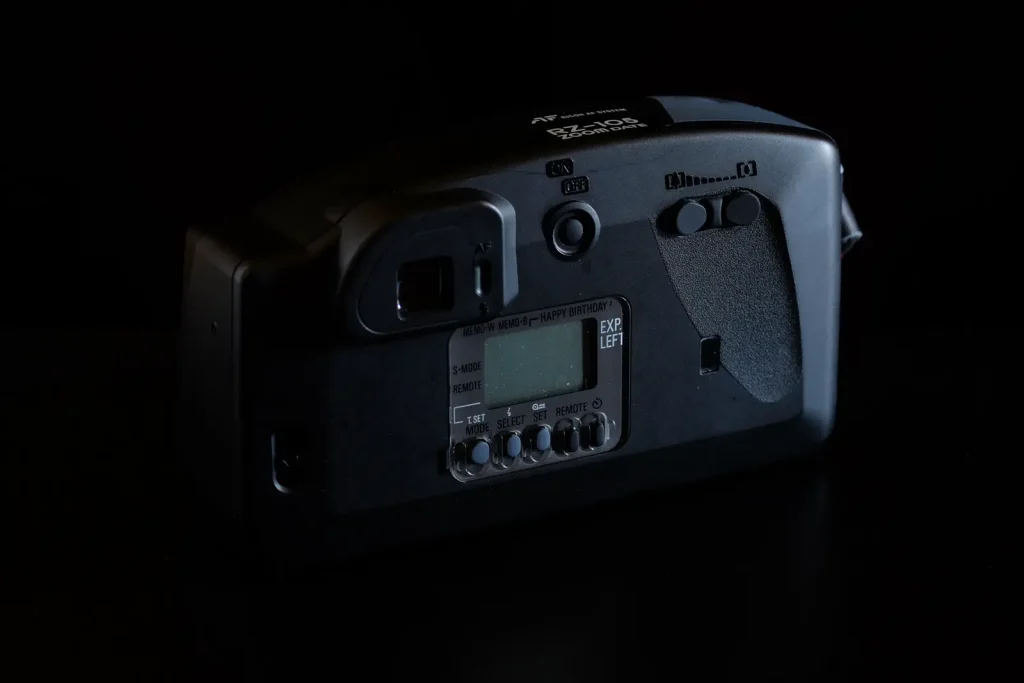
Specifications.
As mentioned, in term of specs the Ricoh RZ-105 Zoom Date seems quite run of the mill. It sports a 38 to 105mm zoom lens (with 2 aspheric elements), albeit a bright one with maximum apertures of f3.6 and f5.5 at the wide and zoom end of the zoom respectively. It has shutter speeds of 1 second to 1/500th, passive autofocus (switches to active in low light) in 2048 steps (whatever that means, but seems a lot) from 0.65m (at tele) to infinity; ISO 64 to 3200; pre-winding to the last frame and, most importantly, date and “Happy birthday!” imprinting.
Regarding flash and creative modes the Ricoh RZ-105 it’s also pretty standard. Flash on (auto and fill-in) and off, red-eye reduction and Super Night Mode which takes 2 consecutive exposures, one focused on infinity without flash and another with flash after re-focusing on the subject (if there’s any within 7 meters). Additionally, the camera offers Single-AF (spot focus) and a Ricoh’s staple, TV mode. The Super Night Mode doubles as infinity focus depending on the light levels.
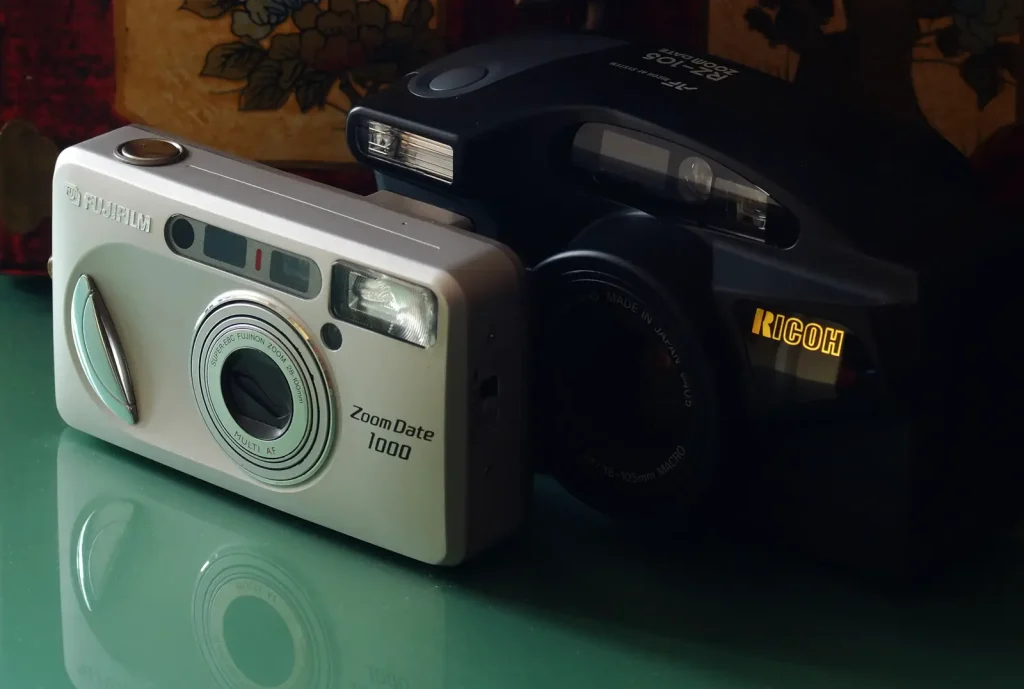
The feature that interested me most and that sets this point-and-shooter apart is the ability to convert the lens to 28mm with a further press of the zoom toggle. How cool is that? A slight drawback is that it comes with a fixed f8 aperture and the minimum focusing distance goes back to 1.4m (1 meter at 38mm).
Also unusually, the lens barrel is threaded to take 40.5mm filters, which opens further possibilities. I must admit though that my interest in the 28mm setting had more to do with its quirkiness than an actual love for this focal length. My appreciation for the wide angle would come in the following year after using a Fujifilm Zoom Date 1000 (28-100mm). But this is another story.
Let’s recapitulate
Now, going back to late 2016, I got the Ricoh RZ-105 Zoom Date for a fiver including postage but, although everything else seemed to work (zoom, focusing, LCD screen), the iris didn’t open when firing and the flash was dead. Huge disappointment! I had a look for other examples but I then realised this model was quite scarce. There were 4 or 5 in the US and Germany, but postage from America is prohibitive and the prices on the German ones were crazy.
Since then I’ve seen about 5 coming up at auction on the UK with one being offered at the time of writing (7th of February 2019). The previous week another one was sold for £0.99 after being re-listed a few times. It clearly is an unloved model). So at the time I just kept an eye opened for any good deals and kind of forgot about the RZ-105.
Fast forward to late spring 2018 and, after a pregnancy and subsequent birth, moving out the UK to be with the in-laws for a while, and several months without buying any new camera to play with I was re-kindled with the idea of getting the Ricoh. Admittedly I paid more than a fiver this time but it still was a reasonable price for a working example. Part of the motivation too was to write this review (it’s taken me a while) and show the world (or at least 35mmc readers) that there’s photography outside the Olympus Mjus and Contax Ts.
1Even my SLR looks intimidated by the Ricoh’s evil space -ship look
Using the Ricoh RZ-105 Zoom Date.
Despite its bulkiness or precisely because of it, the Ricoh RZ-105 feels quite comfortable in the hand. At 402gr without battery, it is definitely on the heavy side for a point-and-shoot but the thickness and shape of the grip make it easy to hold. The protruding flash allows for a well-placed shutter release while providing a nice area to rest your index finger with little chance of blocking the flash burst.
I quite like the shutter release and find it very reassuring. With a short half-press the RZ-105 focuses after a few clicking noises, then a final, decisive press to make the exposure, minimizing the risk of camera shake. Operating the zoom toggle shoots the lens out with Lambo style acceleration, so in order to control it single, short presses are necessary. About the zoom toggle, it goes, confusingly, opposite to all my other zoom cameras: left to zoom in, right to zoom out. It is a bit noisy too, but not extremely so. As mentioned, pressing the zoom toggle for one second at the wide angle position the 28mm comes in with a “clack”, the viewfinder adapting to the new focal length accordingly.
One of the things I like less about the Ricoh RZ-105 Zoom Date is the way the mode selection is implemented. The buttons are actually OK, they’re quite easy to press, even though they’re slightly recessed. In order to select the shooting program, you need to press the mode button, with the two printing modes (date and happy birthday) being implemented first, then the creative modes, flash modes and back to the printing options. Once the icon of the program you want appears on the screen you press the select button, further presses of which will then take you within that particular menu in a circular way. This translates in endless cycling through menus and it can be a bit exasperating.
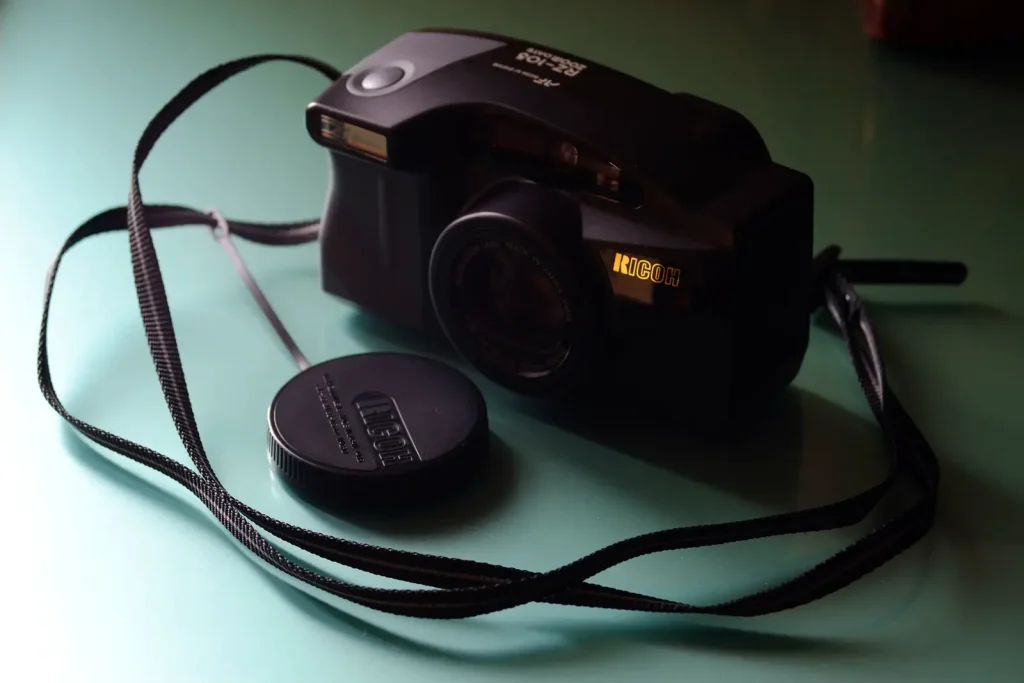
Further quirks.
The Ricoh RZ-105 was presented at Photokina 1992 and offered up to ten additional functions via a remote (sold separately) such as exposure bracketing when using slide film or autozoom, as well as the ability to imprint three captions up to 20 characters in length. It also remembered birthday dates, updating itself every year. You could also purchase a panoramic mask that, strangely, fitted in front of the lens, which produced fuzzy edges. The ISO range was broad at 64-3200, something not many point-and-shoots offered. Now, on paper, the Ricoh RZ-105 seemed to offer a lot but by the number of examples available today I’m not sure many buyers were seduced by it in 1993. At 449 dollars, short of 800 dollars of today’s money, it wasn’t exactly cheap, maybe contributing to its apparent lack of success.
The photos
I first ran two rolls of Kentmere 400 through the RZ-105 with the DX code hacked to 800. This is my standard black and white film/ISO for point-and-shoots. Because I had one, I put a 42.5mm yellow filter on the lens which means the film was exposed at 400 more or less considering the filter factor. That should’ve been OK with the top shutter speed of 1/500 but I think I overdeveloped it a bit and some of the frames have no detail in the highlights. Either this or I didn’t do a very good job at scanning, which is a possibility. The autofocus was also mostly spot on but on a few frames shot in busy forest scenes it got confused. I was so excited to try the camera that I completely forgot to turn the date imprinting off so a few frames show 92 1 4!
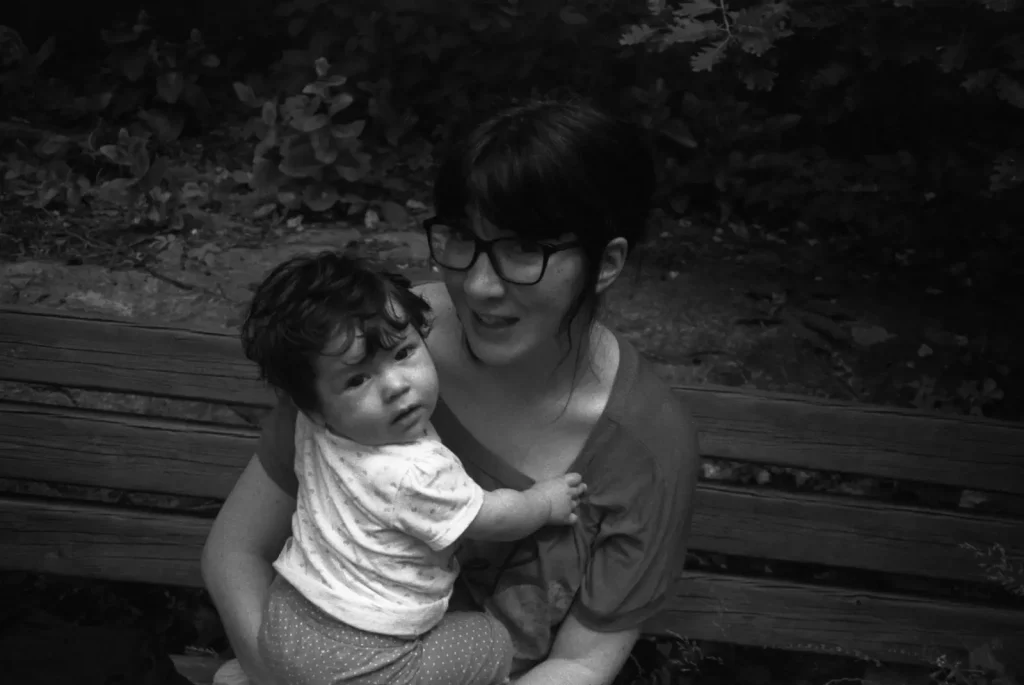
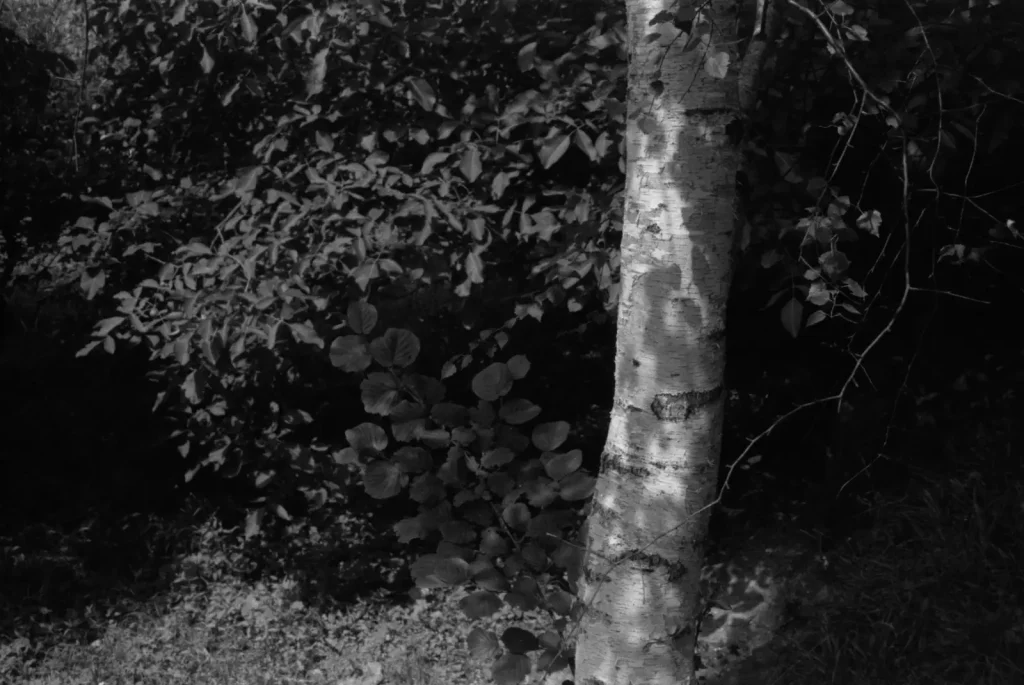
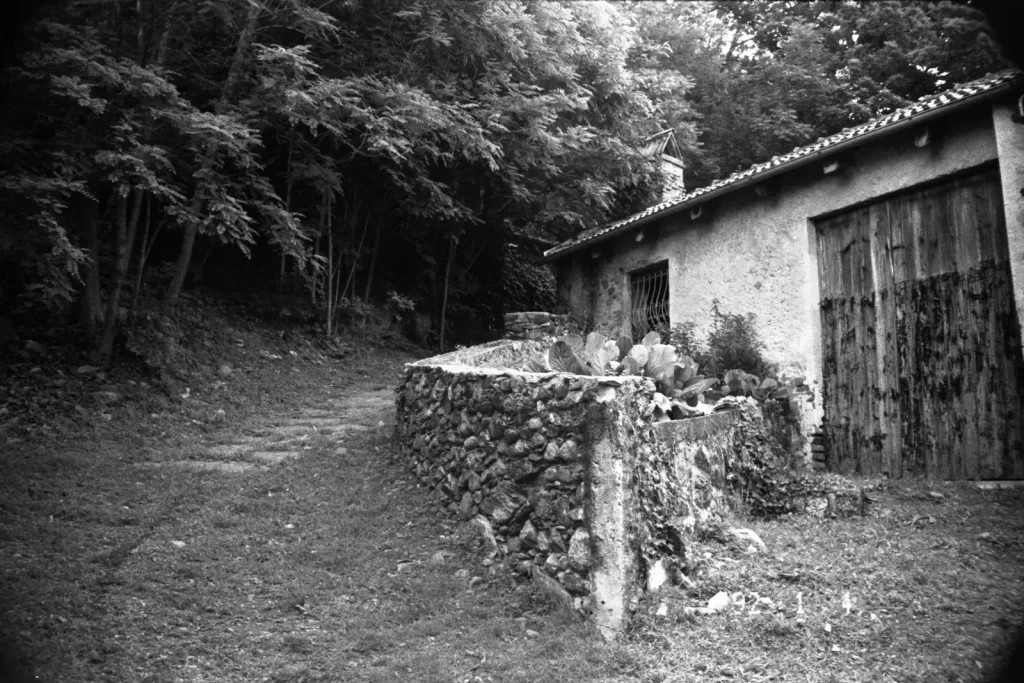
The RZ-105’s lens seems to be sharp enough, especially at 28mm but it looks softer at the longer end. This could be exacerbated by the increase in film grain as it’s been slightly pushed. In any case, I don’t mind a bit of softness and overall it has a very nice rendering even though it vignettes at the 28mm setting and shows some evident distortion as seen on the church scene. The vignetting is quite dense but that’s due to the yellow filter frame which is quite thick. On some photos the horizon is skewed to the right even though I made an effort to keep the camera straight, maybe there’s some issue with the viewfinder, something I’ll have to check with further use.
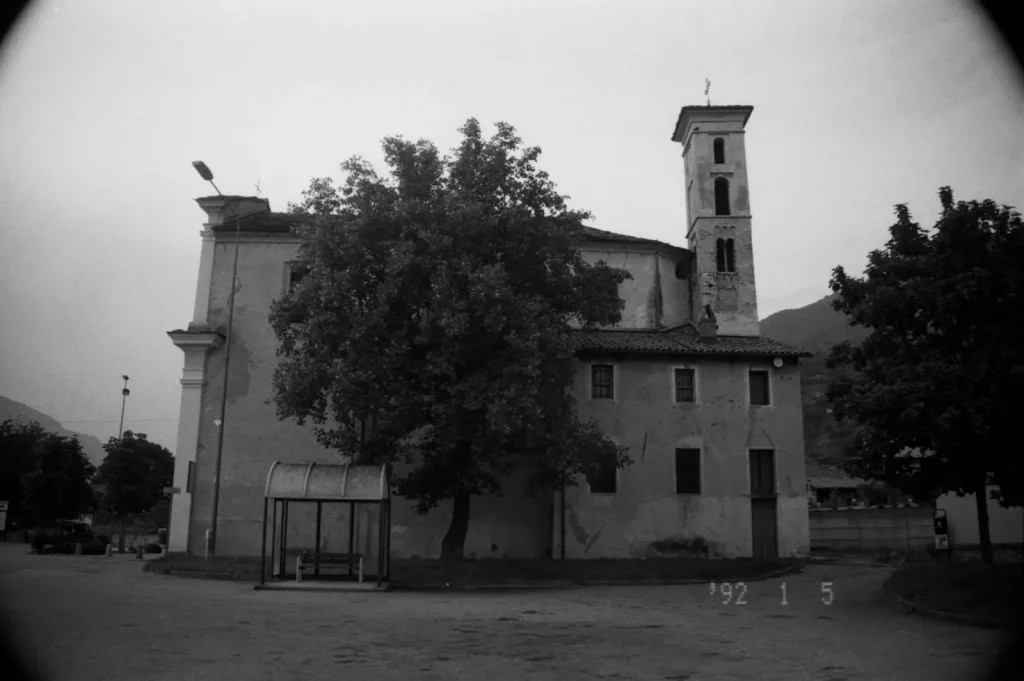
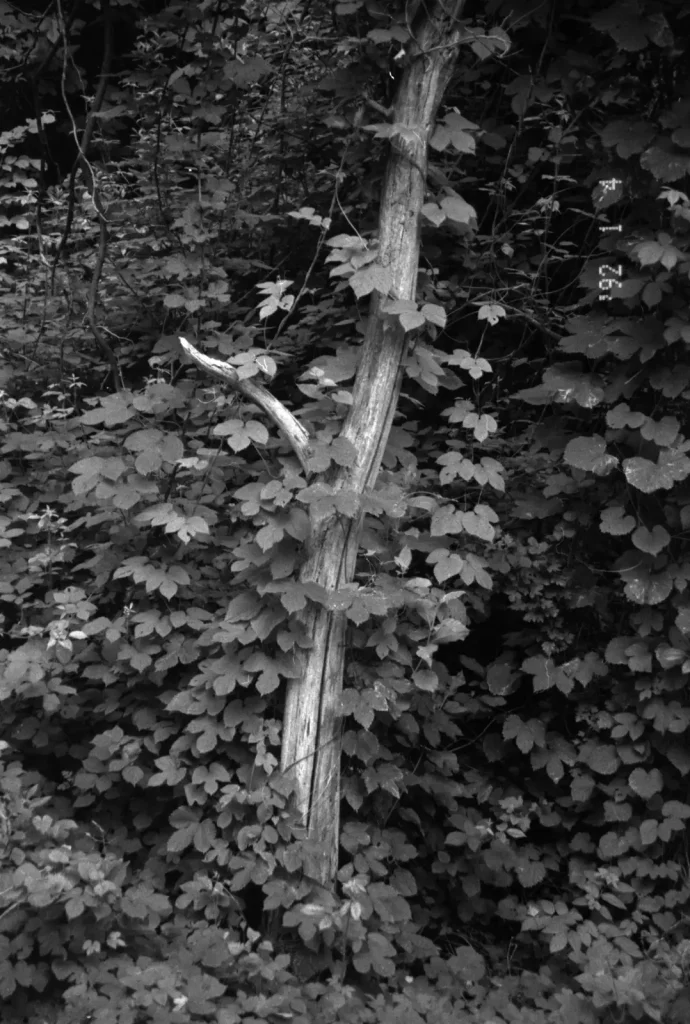
All in all, I really liked using the Ricoh RZ-105. It has the heft of an SLR at half the weight (I’m talking about all-metal SLRs here) and the 28mm focal length offers more versatility than the slightly pedestrian 38 to 105. In fact, I liked it so much that after tuning it with a thin UV filter to act as a cap, and a nice red wristband I took it with me to our holiday in Sardinia, loaded with Lomography 800 film shot at 400.
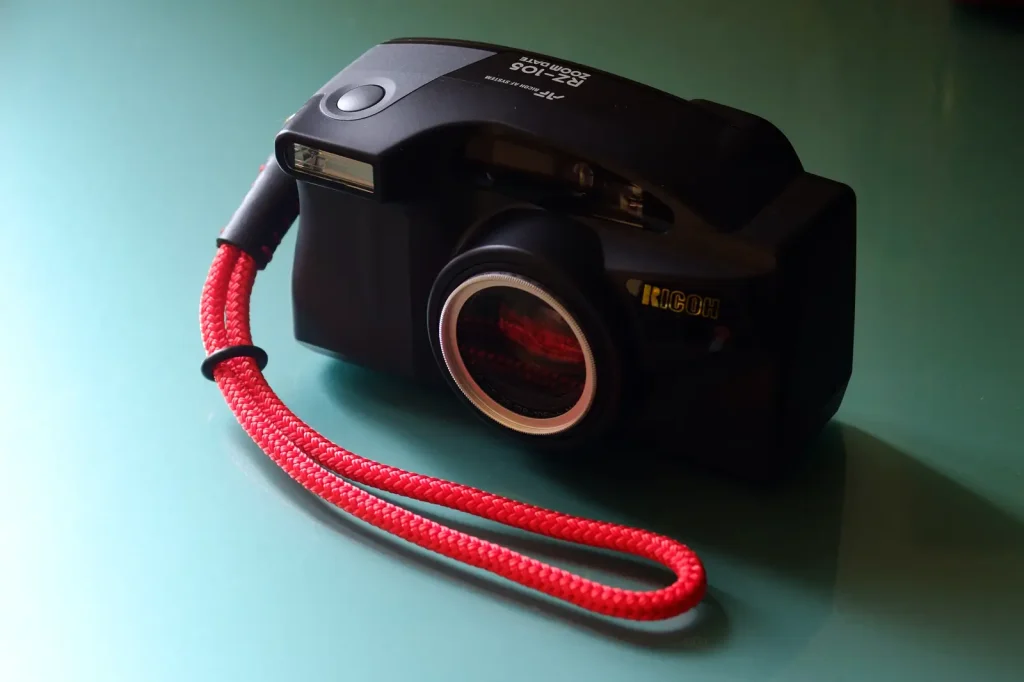
I loved the results, the colours look bright and contrasty and the film’s grain adds a special softness that’s right up my street. I think Lomography 800 might be my favourite colour film now.
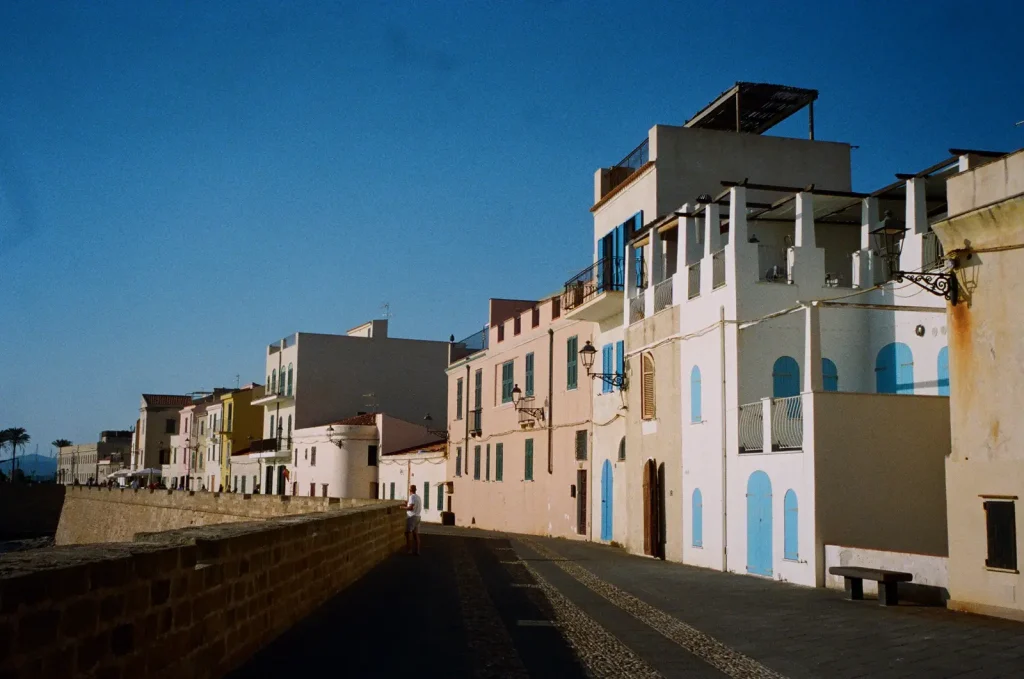
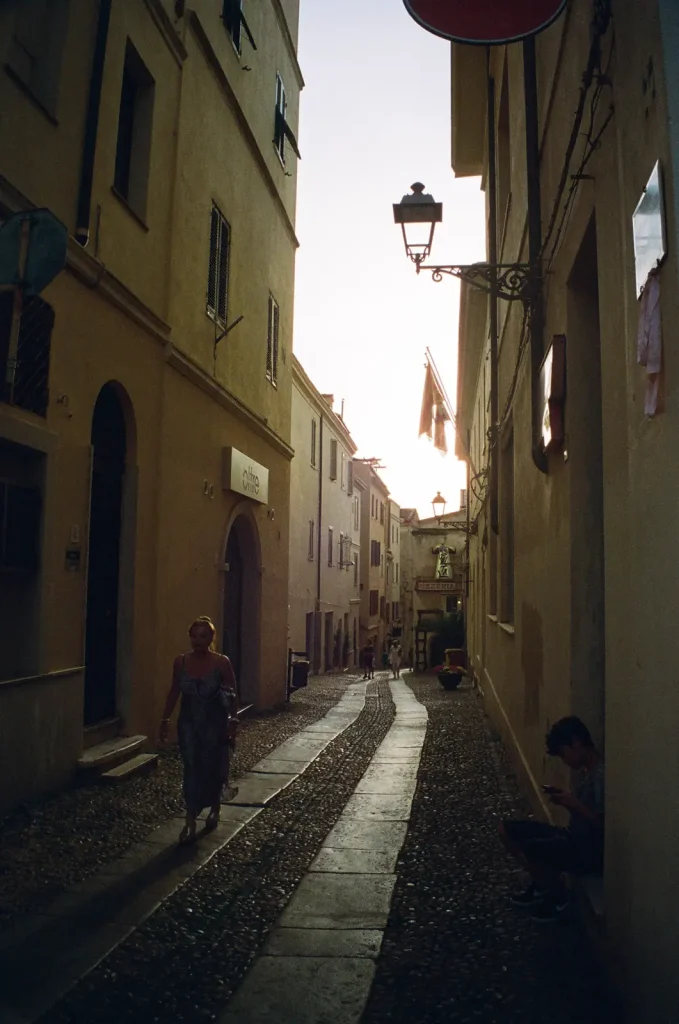
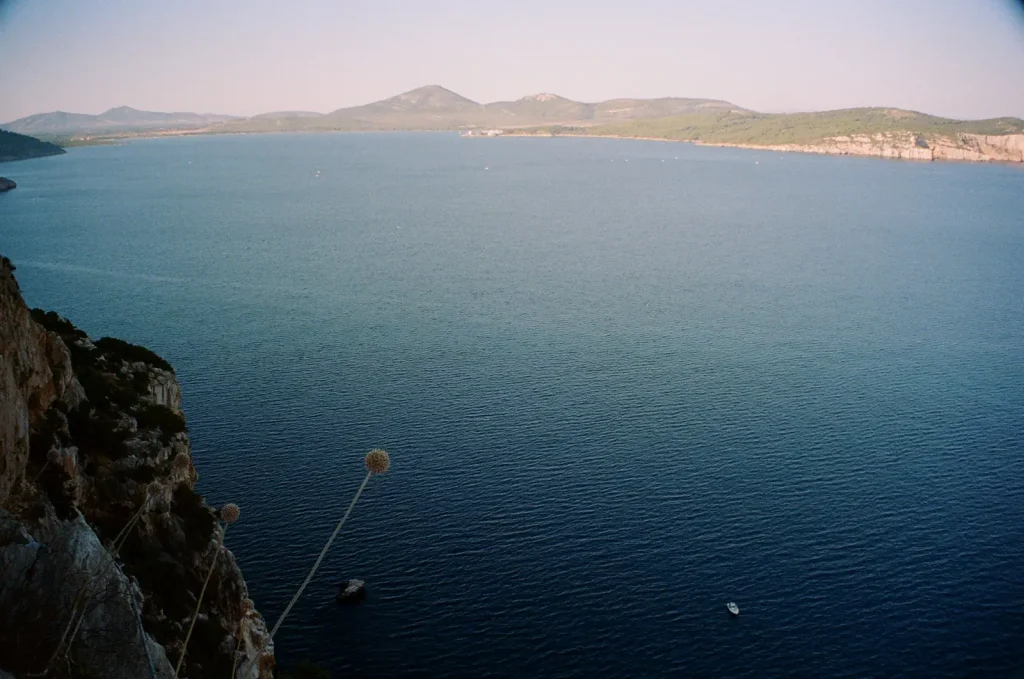
To summarize, this is what I like about the Ricoh RZ-105 Zoom Date:
– Great looks.
– Convertible to 28mm.
– Ability to mount filters.
– Comfortable in the hand.
– Pre-winding of the film.
And what I didn’t like:
– Not really compact.
– Cumbersome mode selection.
– Expensive 2CR5 6V battery.
– Crappy original lens cap and neck strap.
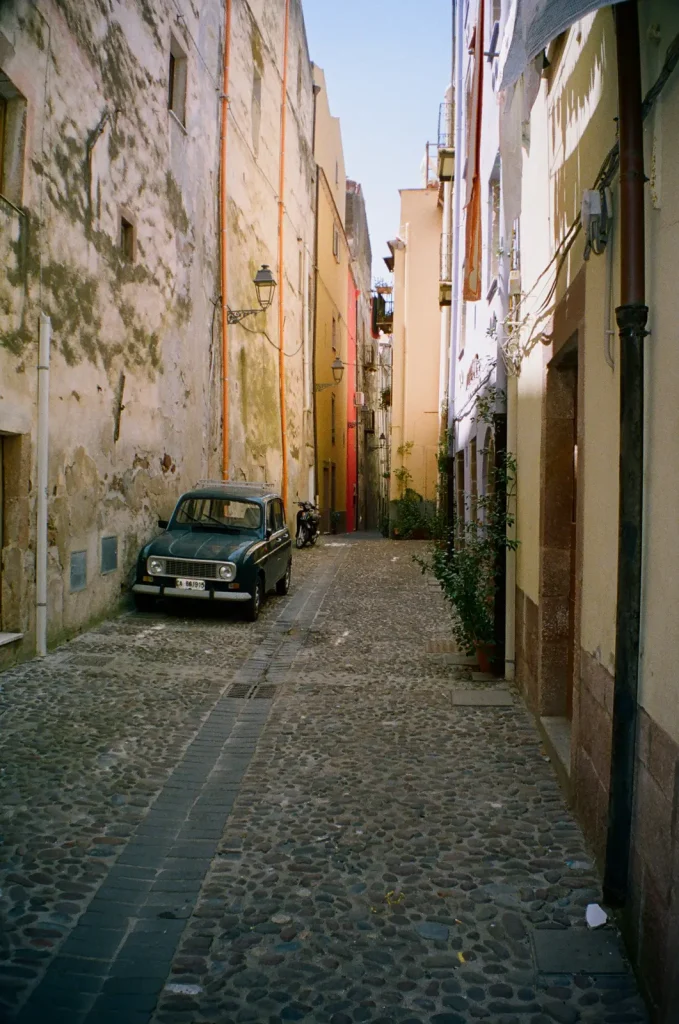
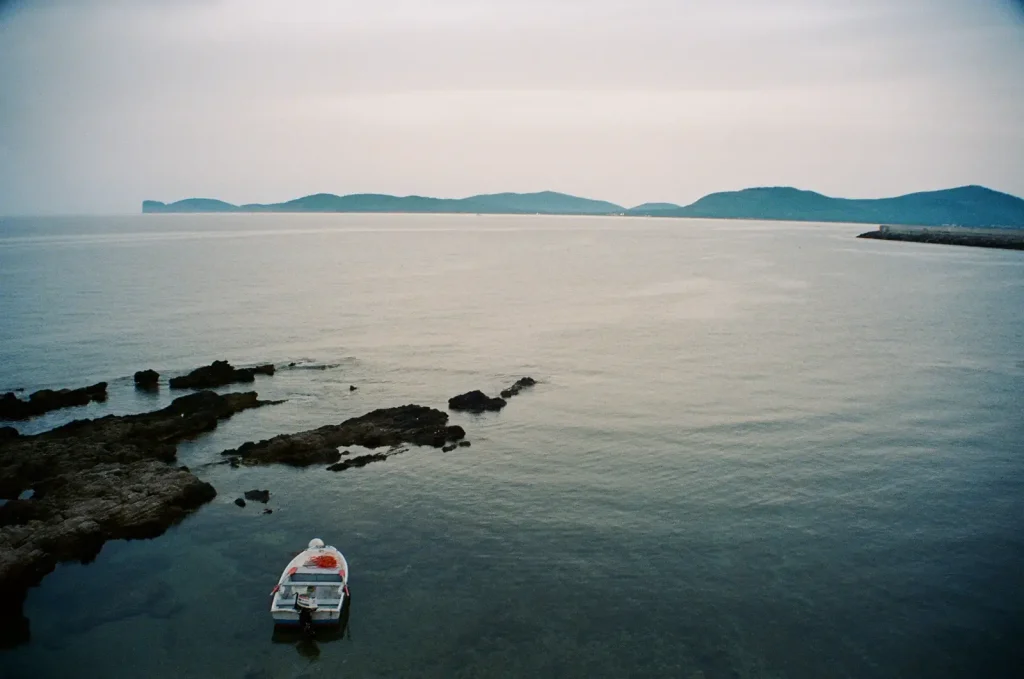
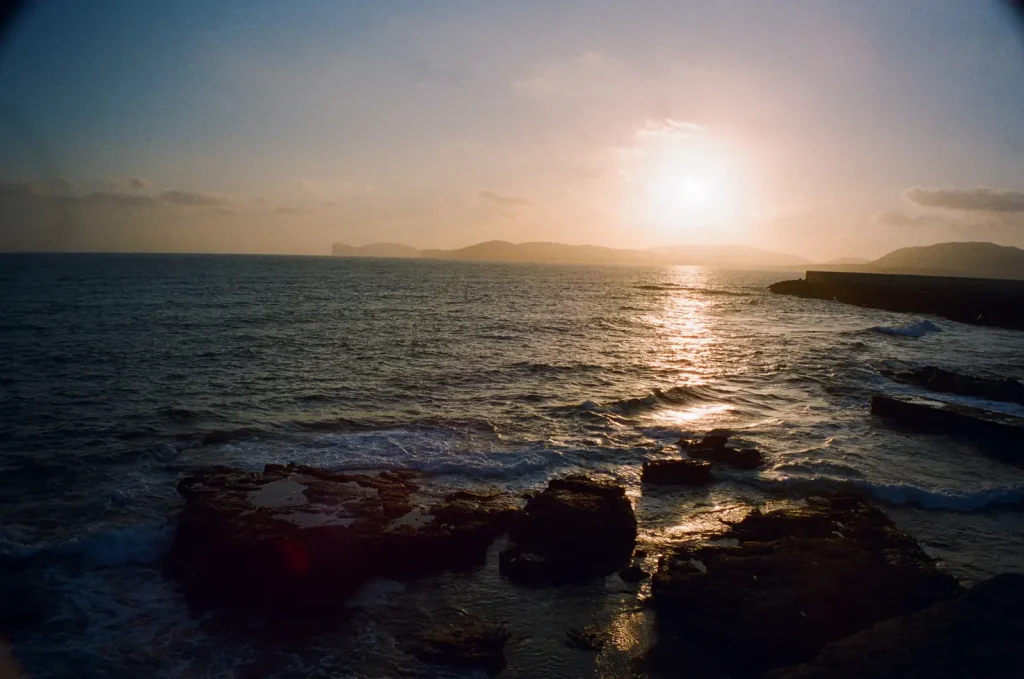
To conclude I think this nRicoh RZ-105 Zoom Date from the early ’90s is a very capable camera. Although I’ve only taken 4 rolls with it I really like the results, especially the colour ones, and this one will definitely stay in my collection.
For some more of my photographs have a look on Instagram @ivanbpalli and @ivan.b.palli
Share this post:
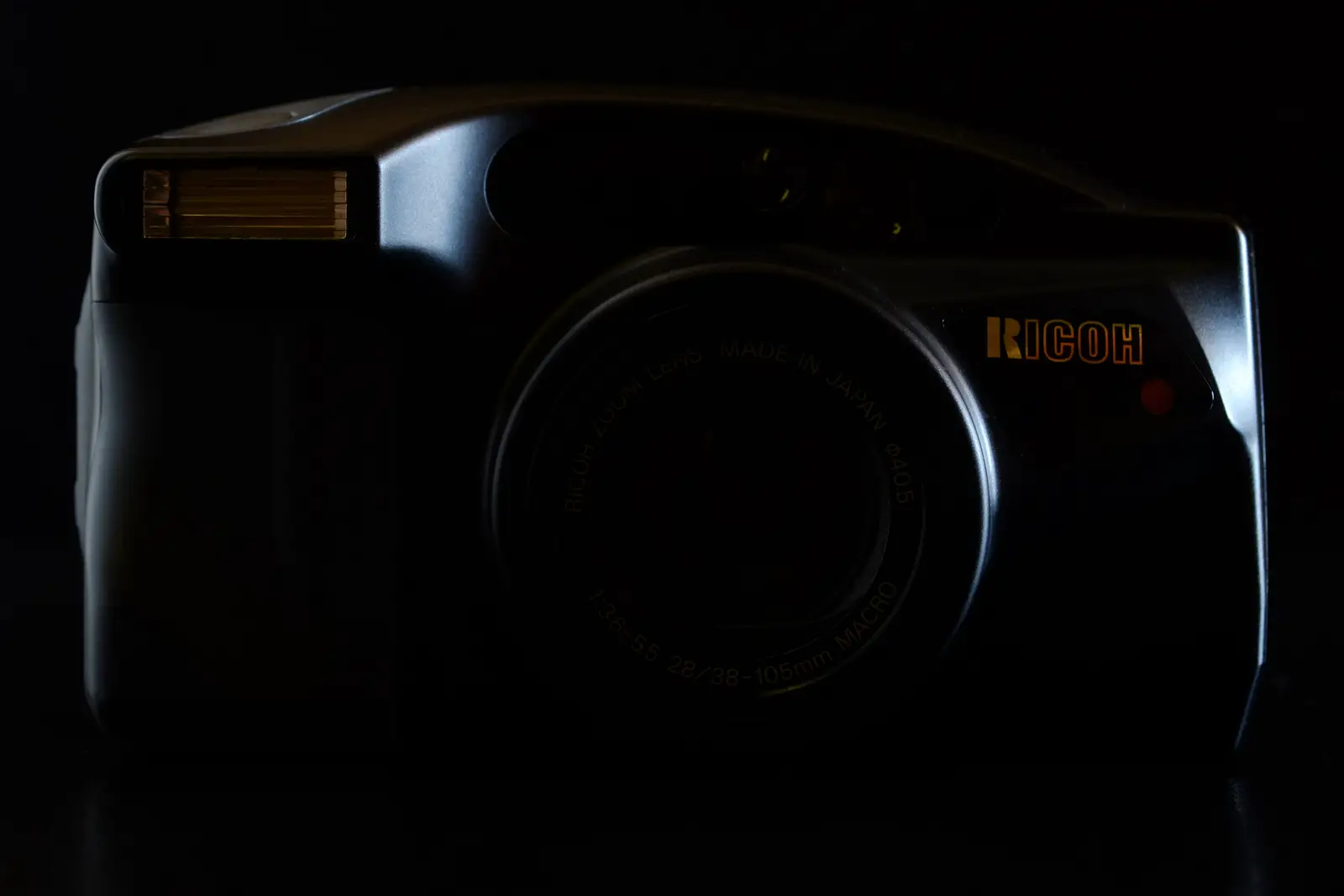

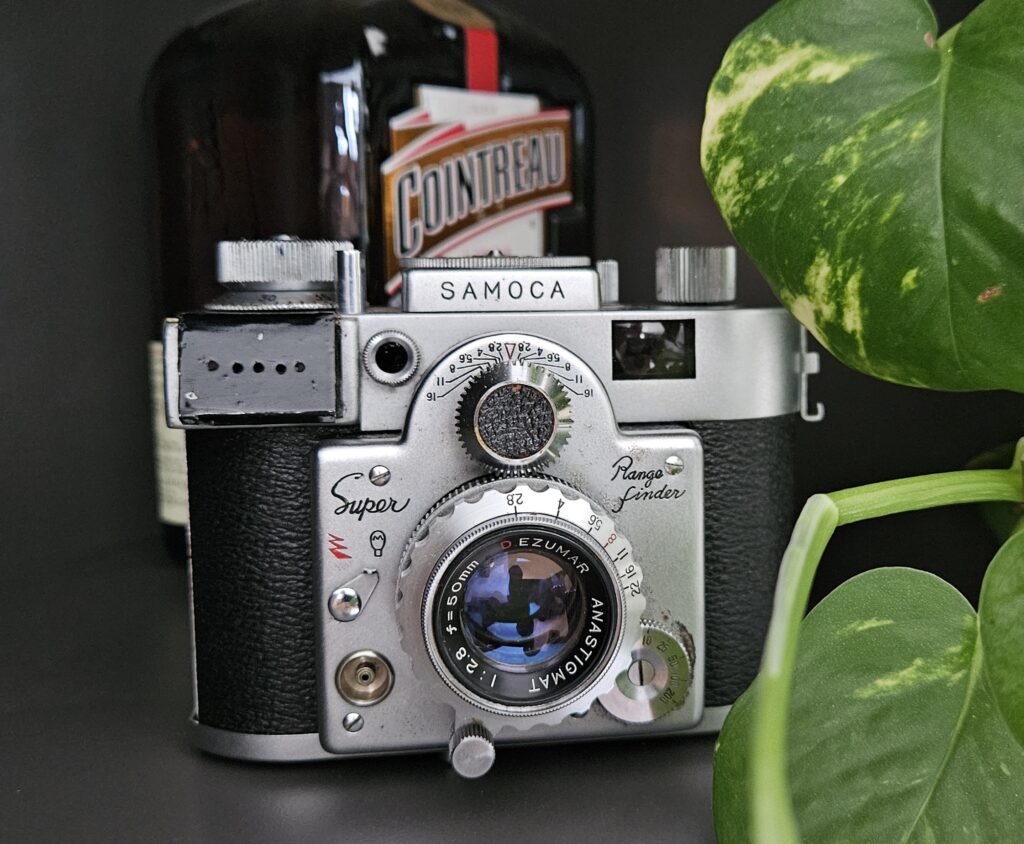

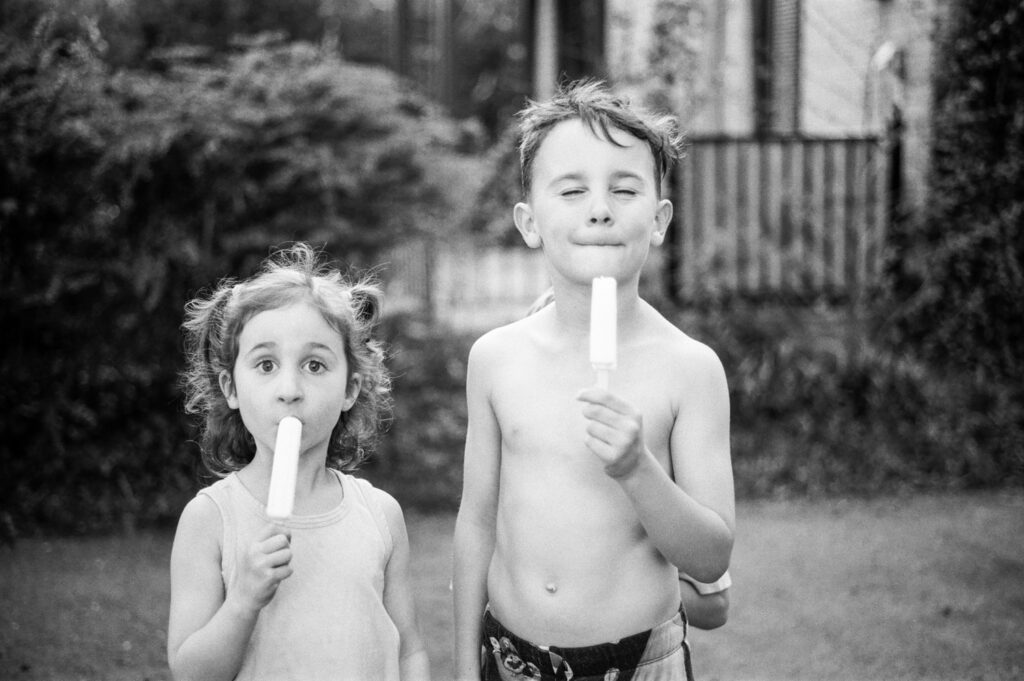




Comments
Paul on Ricoh RZ-105 Zoom Date – Mystery Camera Review – By Ivan Palli
Comment posted: 17/03/2019
Comment posted: 17/03/2019
Andreas on Ricoh RZ-105 Zoom Date – Mystery Camera Review – By Ivan Palli
Comment posted: 17/03/2019
Comment posted: 17/03/2019
James Tappin on Ricoh RZ-105 Zoom Date – Mystery Camera Review – By Ivan Palli
Comment posted: 18/03/2019
It does seem a lot, if we make the reasonable assumption that they mean 2048 steps uniformly spaced in 1/d, then the longest few point would be:
Inf 1330.55 665.275 443.517 332.637 266.110 221.758
and the shortest:
0.650954 0.650636 0.650318 0.650000
That's a 0.3mm precision at close focus and distinguishing between infinity and three quarters of a mile at the distant end!
Comment posted: 18/03/2019
Kelian Lortie on Ricoh RZ-105 Zoom Date – Mystery Camera Review – By Ivan Palli
Comment posted: 01/09/2019
if you’ve already changed yours, how did you do please ?
thanks
(PS ; sorry for my english, im a 16 yo french boy :) and very nice review, thanks a lot)
Ivan Bernal Palli on Ricoh RZ-105 Zoom Date – Mystery Camera Review – By Ivan Palli
Comment posted: 17/09/2019
I've just seen your comment. Thank you! And great you got one too! Hope you like it as much as I do. I have the manual so I could send you a picture of the page about the data printing settings. Any way I could send it to you? Email, or are you on IG?
Gandhi Cabanas on Ricoh RZ-105 Zoom Date – Mystery Camera Review – By Ivan Palli
Comment posted: 06/12/2019
I recently found a Remote Control Unit RC-5 in perfect condition with box, instructions (in German) and new batteries. If you are interest, I can sell it to you.
Ivan Bernal Palli on Ricoh RZ-105 Zoom Date – Mystery Camera Review – By Ivan Palli
Comment posted: 09/01/2020